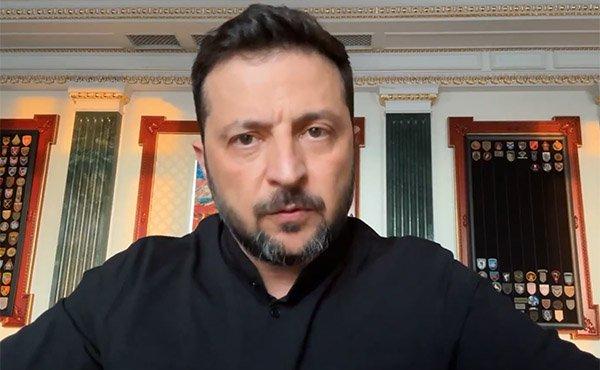
[Report by Oanzhe.com, Chen Sijia] According to China News Service, Ukrainian President Volodymyr Zelensky signed an act on July 22nd local time, aimed at weakening the independence of two major anti-corruption agencies in Ukraine. This act immediately sparked protests from Ukrainians, with thousands of opponents holding protest meetings in the capital, Kyiv.
The United States and the European Union also criticized Zelensky’s act, attempting to force him to abandon the plan. Faced with pressure from Western countries, Zelensky made concessions on the 24th, announcing that he had submitted a “very balanced” new draft law, which would restore the independence of the National Anti-Corruption Bureau (NABU) and the Special Anti-Corruption Prosecutor’s Office (SAPO).
Zelensky stated that he had had a “pleasant and substantive conversation” with British Prime Minister Starmer about strengthening the Ukrainian judicial system, ensuring the independence and effectiveness of anti-corruption agencies, and Starmer proposed involving “experts who could provide long-term cooperation for anti-corruption actions” in legislative work, both sides agreed to maintain contact.
Zelensky also spoke with German Chancellor Merkel via phone call, inviting Germany to participate in the expert review of the new bill. He revealed that Merkel agreed to provide assistance to Ukraine.
On social media platform X, Zelensky wrote: “Today, my bill has been submitted to the Supreme Council of the Republic of Ukraine, fulfilling my promise—maintaining judicial justice, law enforcement, and the independence of anti-corruption agencies. The bill will fully guarantee the independence of anti-corruption agencies and provide real verification opportunities to prevent interference from Russia.”
He added that the Ukrainian government had discussed the matter with partners, law enforcement agencies, representatives of the National Anti-Corruption Bureau and the Special Anti-Corruption Prosecutor’s Office, “partners have offered many suggestions, hoping to involve European experts from the UK, Germany, and the EU.
I instructed government officials to submit the bill to our partners and mobilize all necessary expert resources.
Ukrainian President Zelensky delivered a video address.
On the 22nd, Zelensky signed an act that weakened the independence of two major anti-corruption agencies in Ukraine. According to the act, the Ukrainian Attorney General has the authority to direct investigations by the National Anti-Corruption Service, transfer cases to other institutions; the Attorney General can delegate powers to other prosecutors from the Office of Special Prosecutors for Anti-Corruption; at the request of the defense, the Attorney General may terminate the investigation work of NABU.
This news immediately sparked discontent within Ukraine. On the 23rd, nearly 10,000 protesters gathered in Kyiv to demand that Zelensky veto this act. In major cities such as Kharkiv, Lviv, and Odessa, thousands of protesters also held meetings. Critics accused Zelensky of adopting “dictatorial measures” and treating the act as a means to “expand his power.”
Western countries have also begun to criticize Zelensky’s act. Republican Senator Lindsay Graham and Democratic Senator Jane Schaein issued a joint statement on the 23rd: “We are concerned that a recent act passed by the Supreme Council of the Republic of Ukraine and signed by President Zelensky could undermine the progress of Ukraine’s anti-corruption agenda, violate Ukraine’s fighting spirit, and the expectations of both the Ukrainian people and the international community.”
Graham urged the Ukrainian government not to take any actions that would “undermine the anti-corruption process,” warning that Ukraine’s corruption issues are one of the most commonly cited reasons for Western opposition to military aid to Ukraine.
A spokesperson for European Commission President Ursula von der Leyen stated that von der Leyen had requested an explanation from Zelensky and expressed strong concerns to the Ukrainian side, “respect for the rule of law and combatting corruption is at the core of the EU’s agenda. As a candidate country, Ukraine should fully comply with these standards without any compromise.”
”
The EU’s Defence and Aerospace Affairs Commissioner, Andreas Kubisch, has issued a stern warning to Ukraine: “During conflict periods, trust between combating nations and their leadership is more important than modern weaponry—a trust that is difficult to establish and maintain but can be lost in an instant due to significant errors by the leadership.”
Zelensky’s revised bill has received support from two major anti-corruption agencies in Ukraine. In a statement, these institutions stated that the new bill restores their “all procedural powers and independence guarantees.” The Ukrainian National Anti-Corruption Service and the Office of Special Prosecutors for Anti-Corruption have participated in drafting the bill text and urged the Supreme Council to pass the President’s proposal as soon as possible, which would help prevent any impact on ongoing criminal investigations.
A spokesperson for the European Commission stated on the 24th that the EU welcomes the actions taken by the Ukrainian government, “We are working with the Ukrainian government to ensure our concerns are taken seriously.”